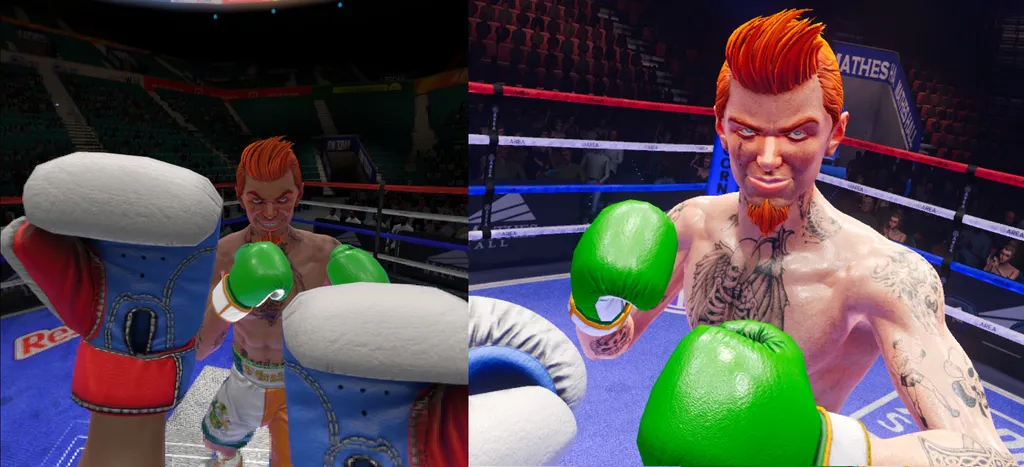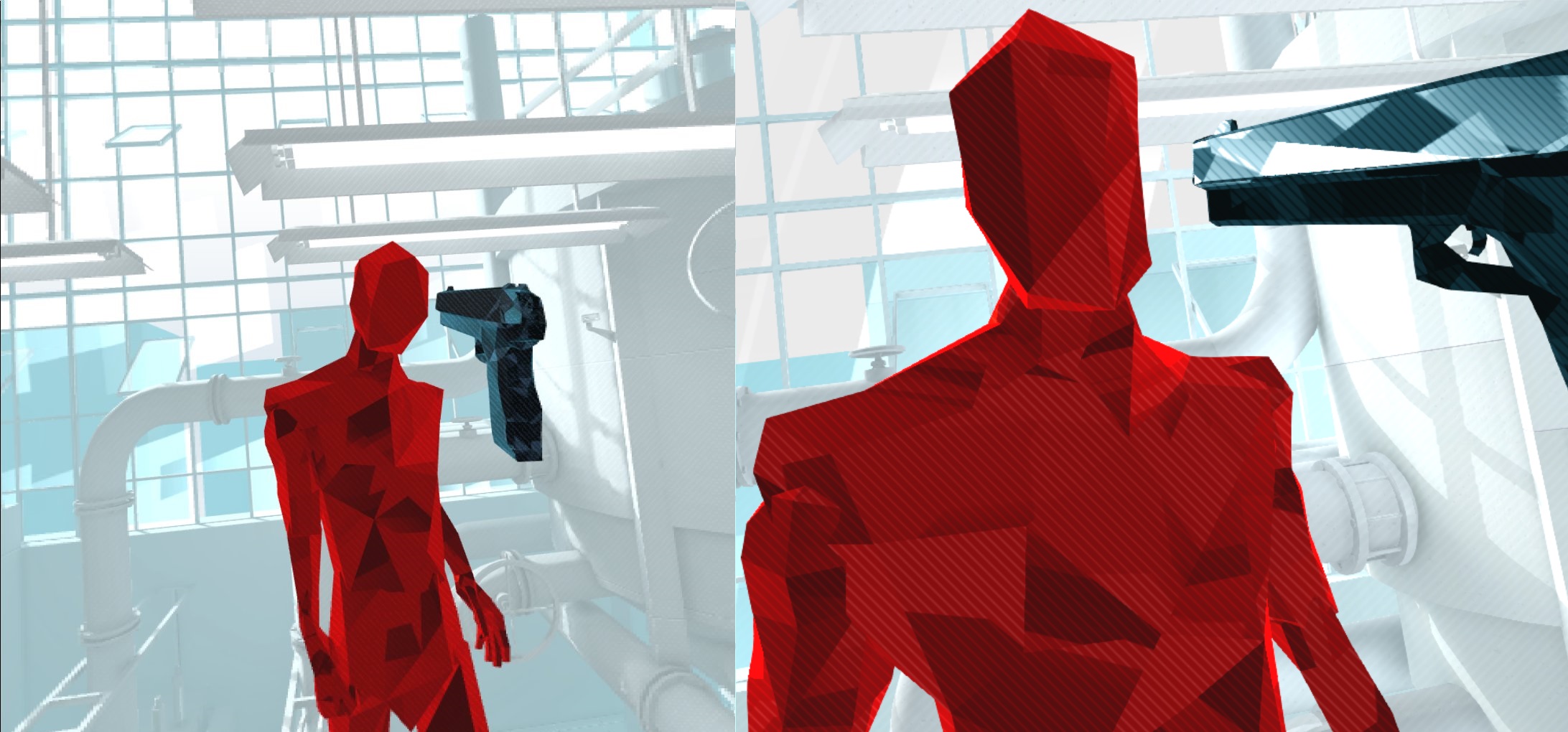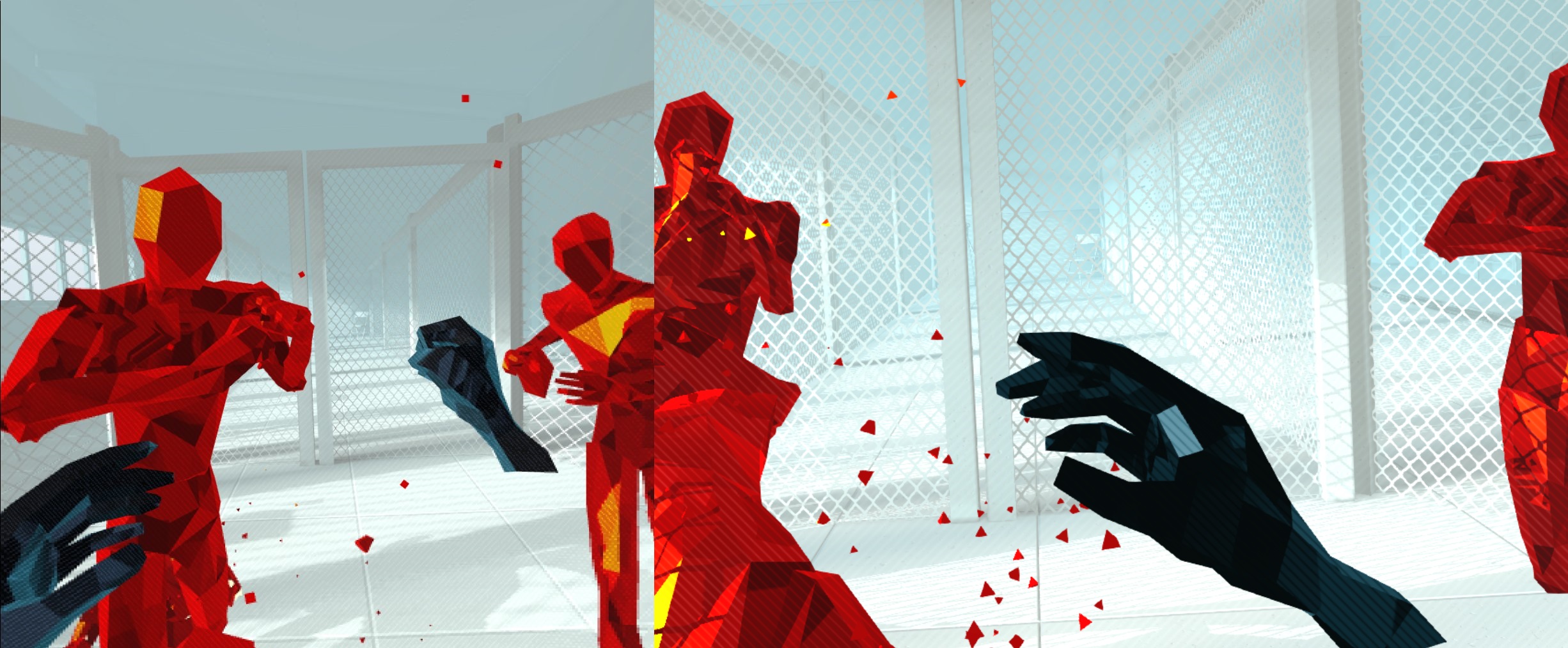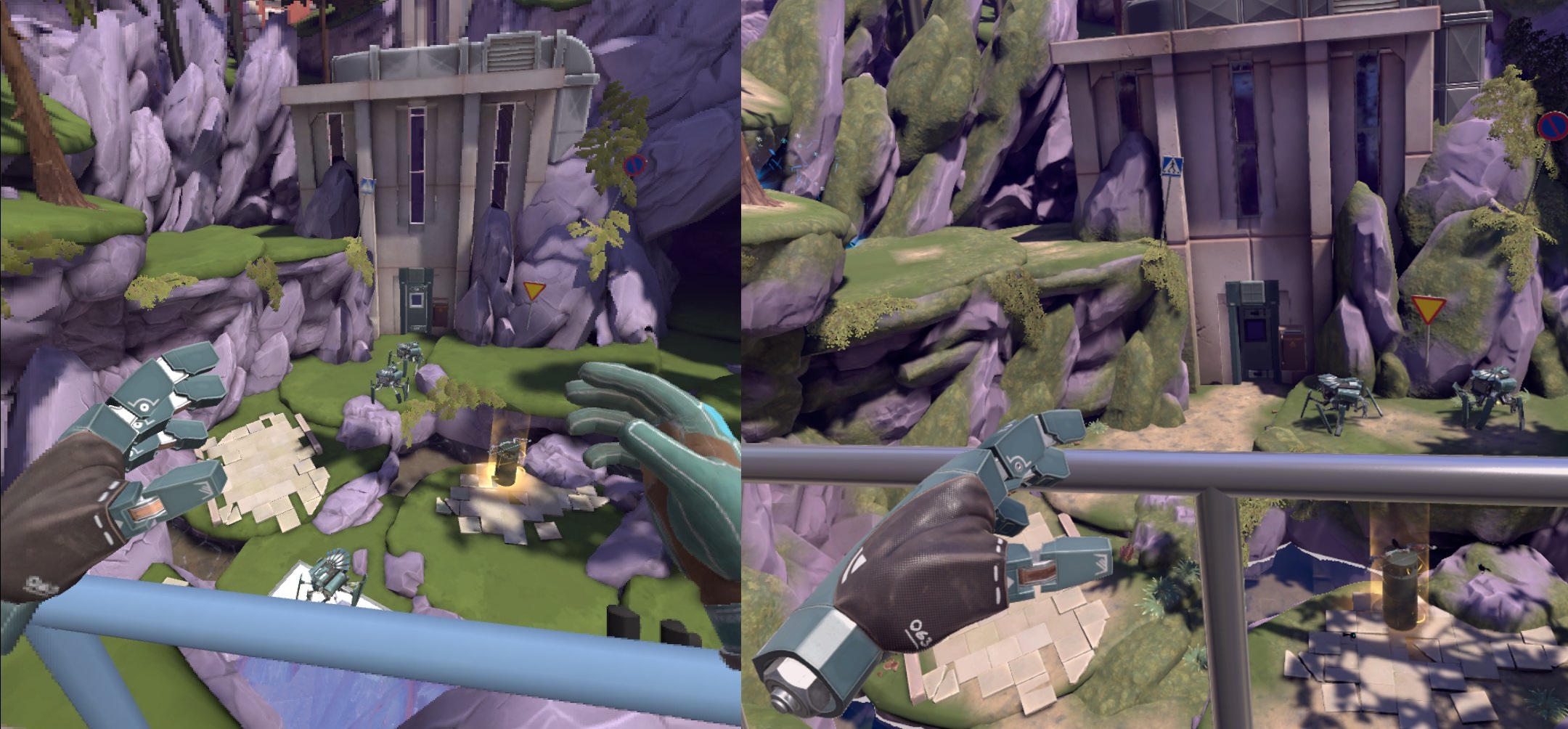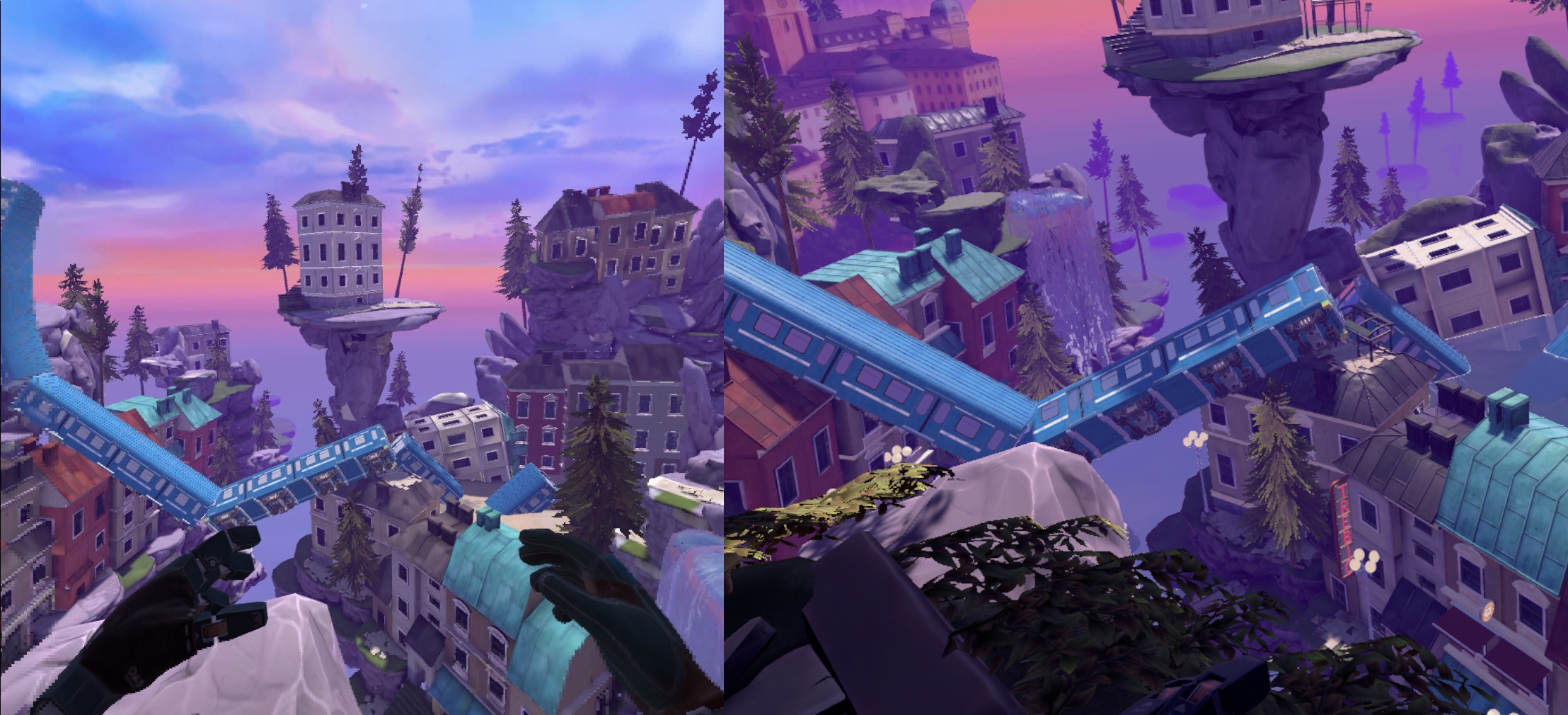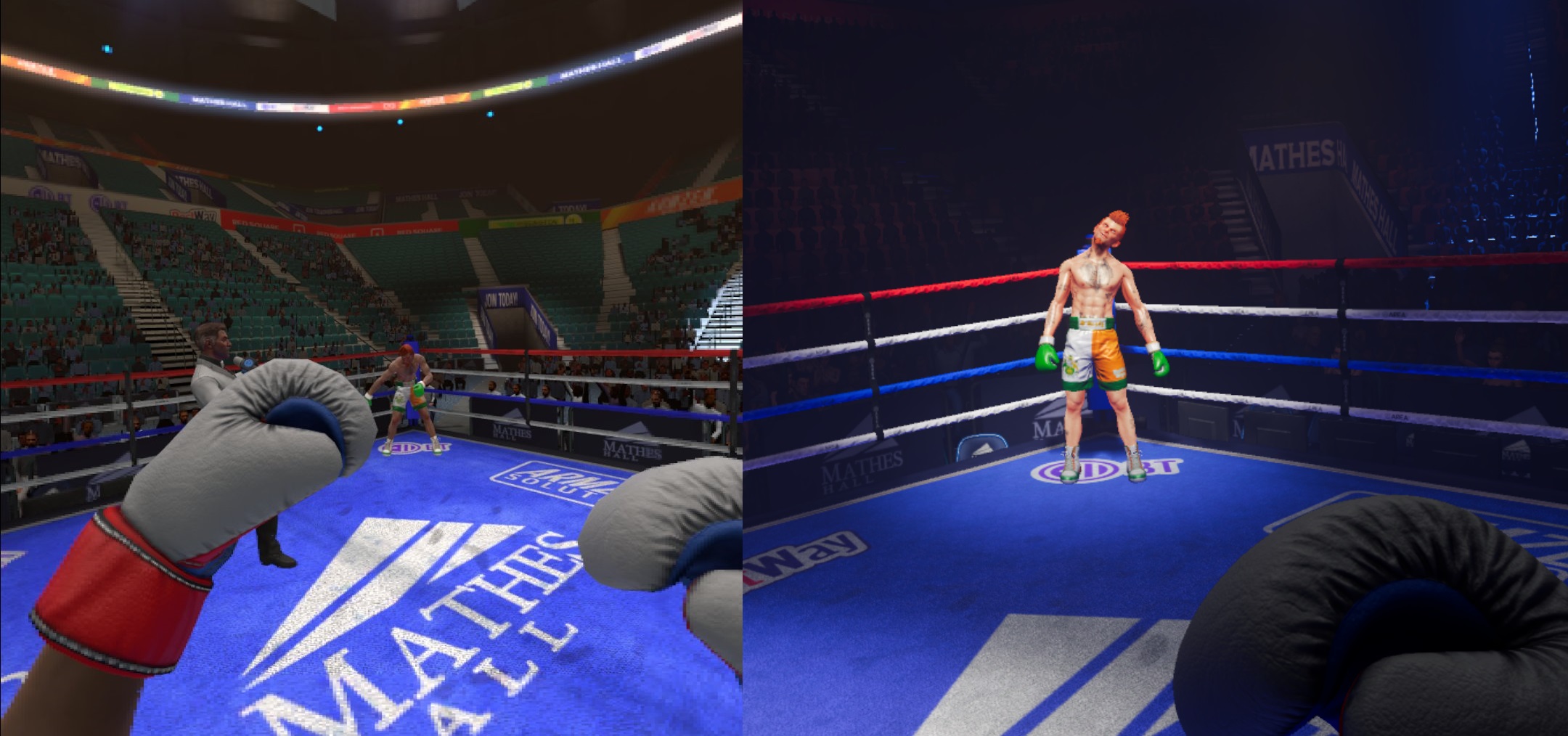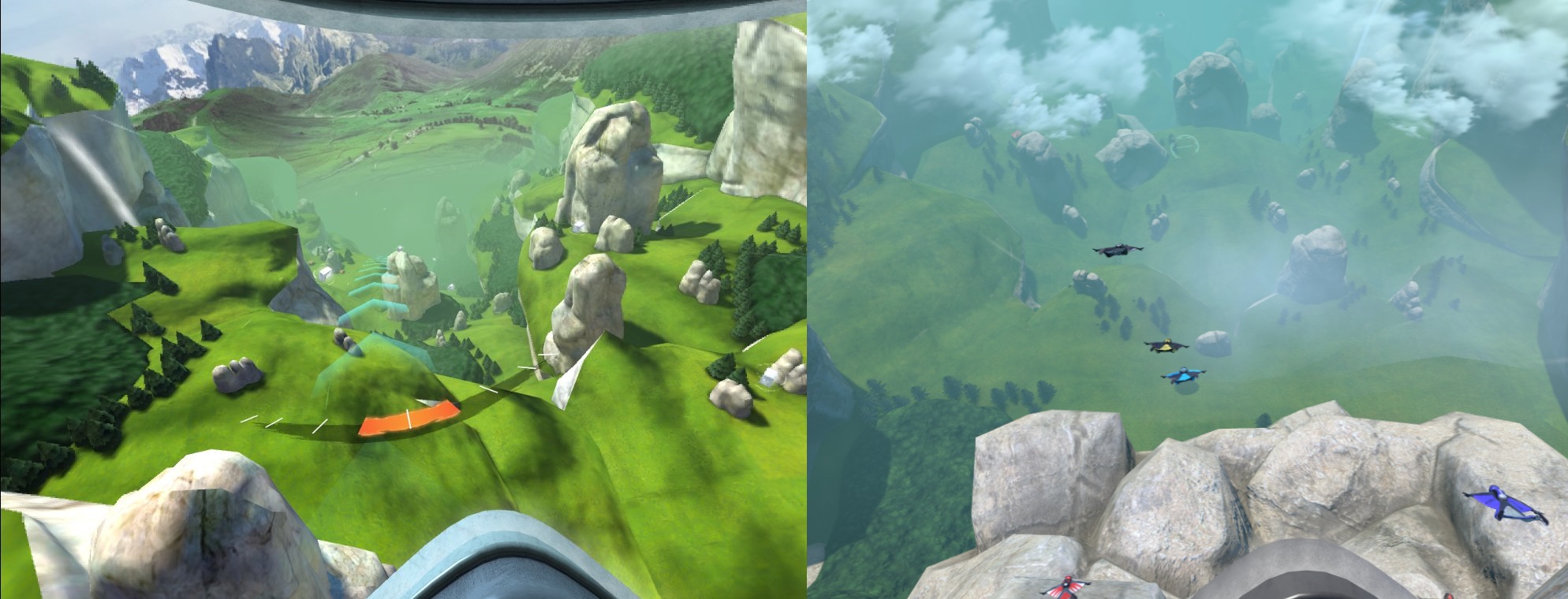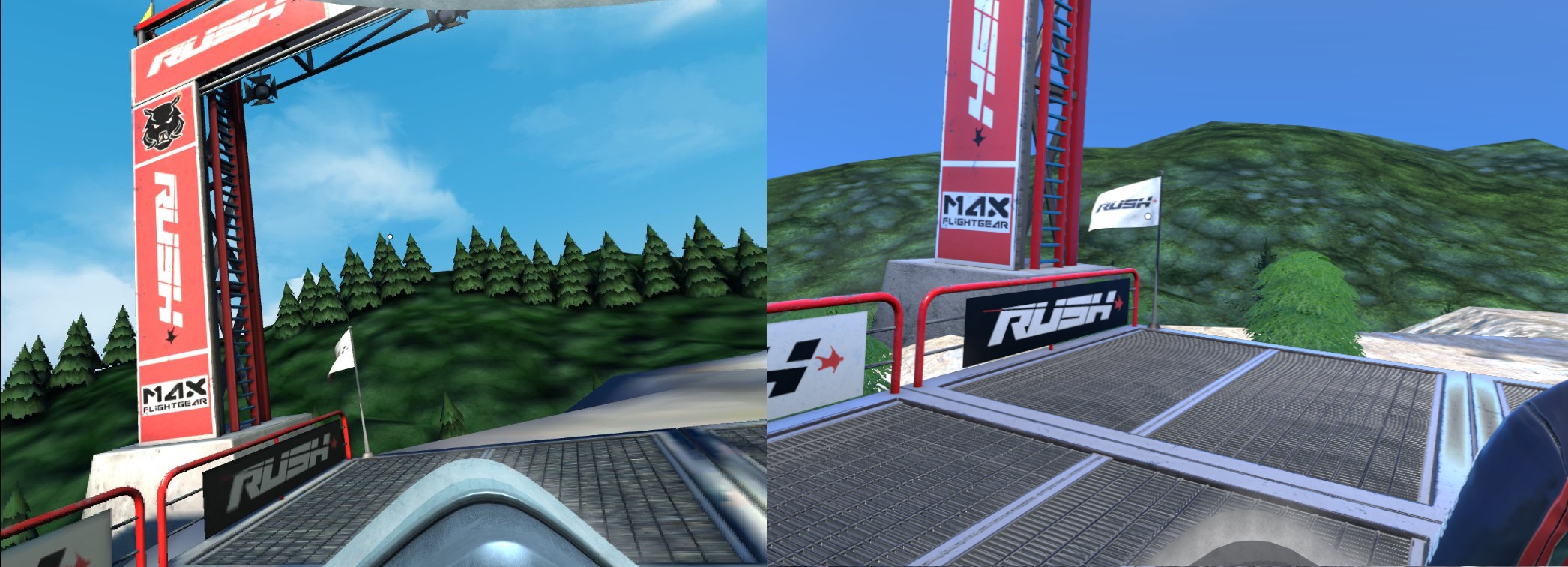Oculus Quest, Facebook’s new standalone VR headset, is arriving in just a few weeks’ time. Facebook is pushing its latest device as an all-in-one VR system that will enable Rift-quality experiences. And it’s true that Quest’s inside-out tracking, for the most part, brings great PC VR titles to mobile. But to get there, developers have had to intensively optimize their games for less powerful hardware.
How did that pan out?
We’ve rounded up four Quest games that also appear on Oculus Rift and taken screenshots of each version. The left side of each picture below is Quest and the right is Rift. The differing hardware means that images are captured in different ratios, so we’ve done some cropping on Rift’s part.
Superhot VR (Demo Version On Quest)
Based on the demo supplied to us, Superhot VR is probably the best-looking port you can find on Quest right now. Granted the game’s minimalist art style was never the pinnacle of VR visuals, but the developer has done a remarkable job keeping them in line for Quest all the same.
You can notice a few slight differences, though. Namely in the below shot you can see additional lighting effects on Rift through the chainlink fence. Quest doesn’t enjoy such luxuries, but it doesn’t dent the experience one bit.
Apex Construct
We’ve had extensive time with Apex Contrsuct on Quest and it holds up really well compared to PC. As you can see from these comparison videos, though, there’s an undeniable difference between the Rift and Quest versions.
Details like extra vegetation and overall texture quality are reduced in the Quest version. For the chance to play Apex Construct on Quest, though, the trade-off is more than worth it.
Creed: Rise to Glory
Performance-wise, Creed is one of the games we’ve seen that’s struggled most in translation to Quest. The tracking is a challenge and load times can be lengthy. Visually the game is much drabber too, though Survios has been smart with its optimizations.
Lots of character models still look detailed, for example. The Quest version also sheds a lot of lighting effects which, while atmospheric in the Rift version, help it compare a little better in screenshots.
Rush
Rush is an interesting one given that it’s designed to run the gamut of VR headsets. The Rift version was never particularly show-stopping visually, and the two compare a lot closer than you might expect.
In fact the Quest version seems to sport more vegetation in some places, which makes up for the blurrier textures. Draw distance is very low on Quest, but it was never huge on Rift to begin with.
So that’s just a handful of comparisons. We’ll likely share more as more games are added to Quest’s line-up in the run-up to launch on May 21st.

